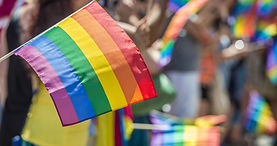
As a global health crisis has entered all of our lives, we’ve seen the impact on equity in education, challenges to our daily economics, and have only begun to see the ramifications on our psyches from social distancing and for some, social isolation. We must all recognize that for now, these challenges may be our new normal. What a lot of you are seeing as interruptions to daily lives, this “new normal”, has been the day to day for many marginalized populations for much longer. There have been adults living paycheck-to-paycheck worrying everyday about what it will look like for them if that paycheck doesn’t come. 51.6% of students in Connecticut participate in free- or reduced-price school lunch and also eat school breakfast. Without access to meal programs, many of those students go hungry. In our public school system, teachers and other educational professionals report one in every five child abuse claims in the nation. Everyday stress, economic instability, and housing insecurity can increase these abusive situations. And in urban neighborhoods, Black, brown and communities of color often lack access to quality health care.
While most of us have not seen a health crisis of this magnitude before in our lifetimes, inequities that have always been there are now lit up for others to see. It’s a scary world at the moment. For many, it’s always been scary. My point? These issues are not new.
During the spread of COVID-19, we are being hyper vigilant making sure those who are hungry are fed, that children are accounted for during virtual class, that our seniors are protected, and that the newly unemployed are instilled with the hope that their homes will be safe. But, to achieve true equity, we must address these constant struggles as if they are always in the foreground, not only during a national emergency.
There used to be a commercial during the 90’s that interrupted every show I watched to give television viewers about three minutes of educational information. It always ended with “The More You Know”. So, now you know. We all know more than we did before. How do you continue to stay mindful of the issues that you have recognized beyond a global pandemic?
To start, begin questioning perceptions. When we challenge our perceptions, we begin to think differently about our assumptions. For instance, does everyone have access to quality healthcare? Does a newly unemployed friend or neighbor have three to six months’ worth of savings? Is every child safer at home than in school?
At some point our social distancing will be over. Kids will go back to school and our society will look the same as it had before all of this began. It will look the same, but should it?
References:
End Hunger, 2019 School Meal Program Report Card, www.endhungerct.org/
USA Today Network, “Children more at risk for abuse and neglect amid coronavirus pandemic”, March 23, 2020, U.S. Department of Health and Human Services
“The More You Know” From Wikipedia, https://en.wikipedia.org/



